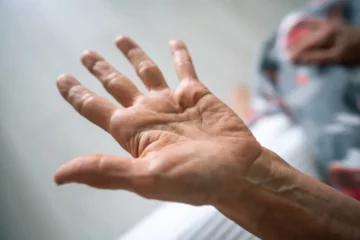
Growing up in Mumbai, Prakriti Poddar was expected to follow her father into the family business of banking. Poddar studied economics and spent several years working in Canada with a technology company before realizing that her true interest was in mental health and counselling. She retrained to become a certified counsellor, clinical hypnotherapist, and neurofeedback therapist — but it is music that’s her hobby and her anchor.
The director of Poddar Wellness, her work involves mental health awareness and resilience training at the corporate and individual levels. Poddar, 43, writes poems and lyrics, which she sets to music and uses as songs during her programmes and talks at workshops in schools, universities and in communities.
To her, poetry and music are potent tools for messaging. “Communication is more impactful when sent out in the form of music,” she says. “It speaks to hearts as well as minds, and keeps talking about mental health from becoming a boring lecture.” She finds that songs, along with other artistic tools such as slam poetry, play an important role in engaging people. She uses her lyrics in her speeches to motivate people. For example, while speaking at the National Women’s Parliament in Amravati last year, Poddar used part of a poem she had written and says it worked beautifully. She says her own poetry resonates better with audiences and clients than verses she takes from other poets.
Poddar wrote her first poem as a child, inspired by her maternal grandmother who was a poet and a faith healer. Since her 20s, Poddar has been writing regularly and describes poetry as a way to put thoughts into words. It helps her connect with people’s emotions and delve deep into her own emotions. “It is both cathartic and therapeutic,” she says. Poddar writes often: when she listens to other people’s music, and thinks ‘I can write better lyrics’, when she is sad or upset, or when she sees something that moves her. “Poetry is a way to put into words my difficult-to-express thoughts ,” she says.
She writes lyrics that are educational and motivational on subjects of importance to the people she talks to on a daily basis. Her brother produces the music and they use these songs during her lectures to make the communication more engaging and inspiring.
Poetry works in other unexpected ways. At one of her previous jobs, Poddar wanted to give discounts to clients but her boss refused. She wrote a poem and sent it to him. “He was really amused and gave me the discount I wanted for my clients,” she recalls.
Music, poetry and writing help Poddar understand human emotion. “Writing gives expression to your innermost thoughts, concerns and doubts. It decompresses the mind, and calms anxieties. Moreover, the idea that you are creating something original generates positive vibes,” she says.
When Poddar listens to music, it is not the beats she focuses on but the lyrics. “Lyrics, especially when you sing them over and over, can activate the neural pathways in your brain. Songs penetrate your subconscious mind. Listening to uplifting music really helps,” she says. “When I listen to music, it is not the beats I am listening to, it is the lyrics, the words. Many songs nowadays do not make sense to me; for musicians, words have ceased to be important. They focus more on the music and the beats. To me, songs feel incomplete without impactful words,” she says.
She says music resonates with people of all cultures, and breaks down barriers. She has created an app, iSound Pharmacy, for therapy, music, guided meditation, and songs to help people improve their mental health. Her app and its music have achieved great results in post-traumatic stress disorder in many of her clients, she says. Currently, she and her team are researching ways to embed sound and music into overall wellness.
Her love of music has also rubbed off on her three children, who play the piano and the guitar. “Music is a gift for your children; it ensures that they do not feel lonely at any point of time,” she says.
Poddar says her job and her hobby flow into each another. Once her business grows, she intends to spend more time on her music. “The message of mental health will spread widely when it is imparted creatively,” she says.
Serious Leisure explores how the hobbies that leaders pursue feed into their work
[“source=livemint”]



